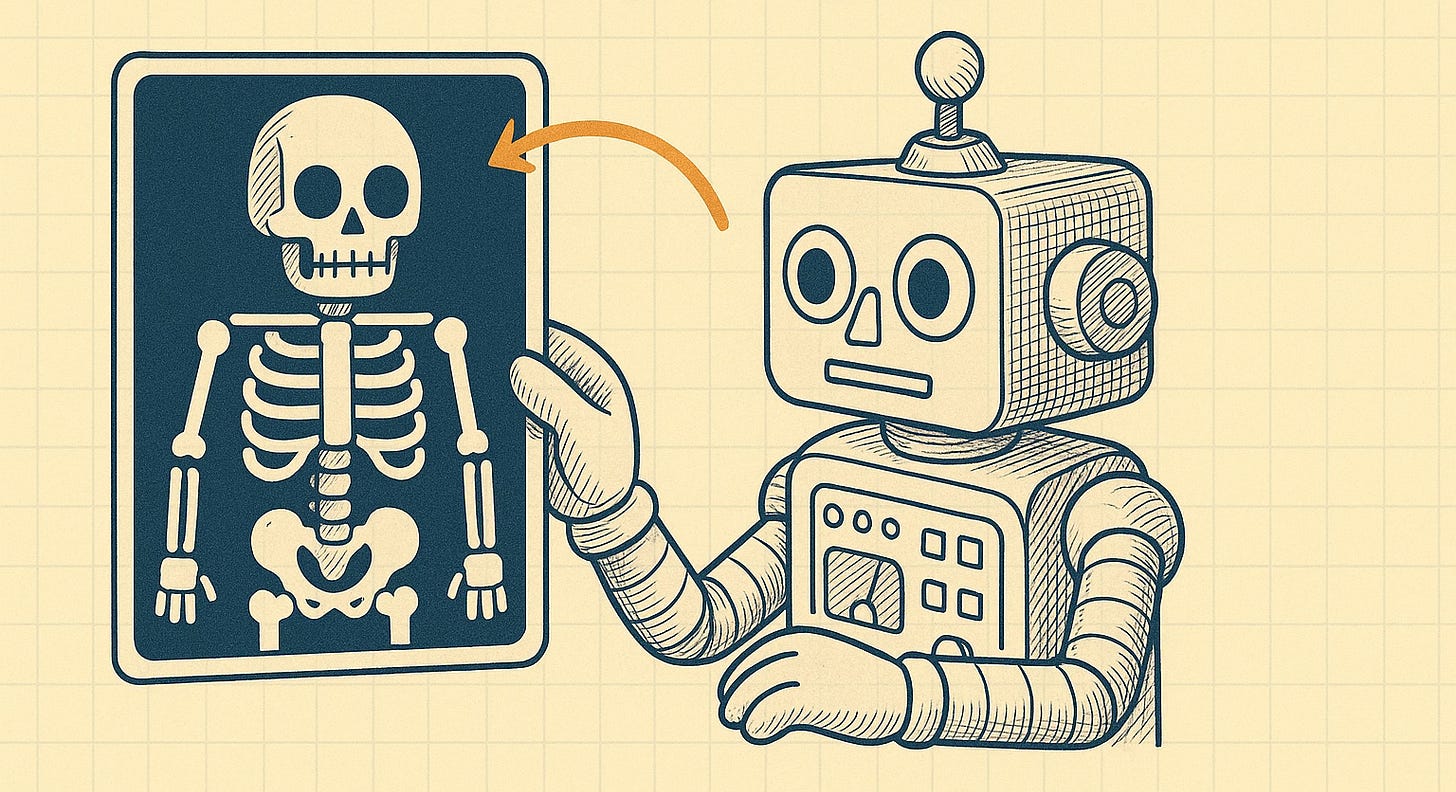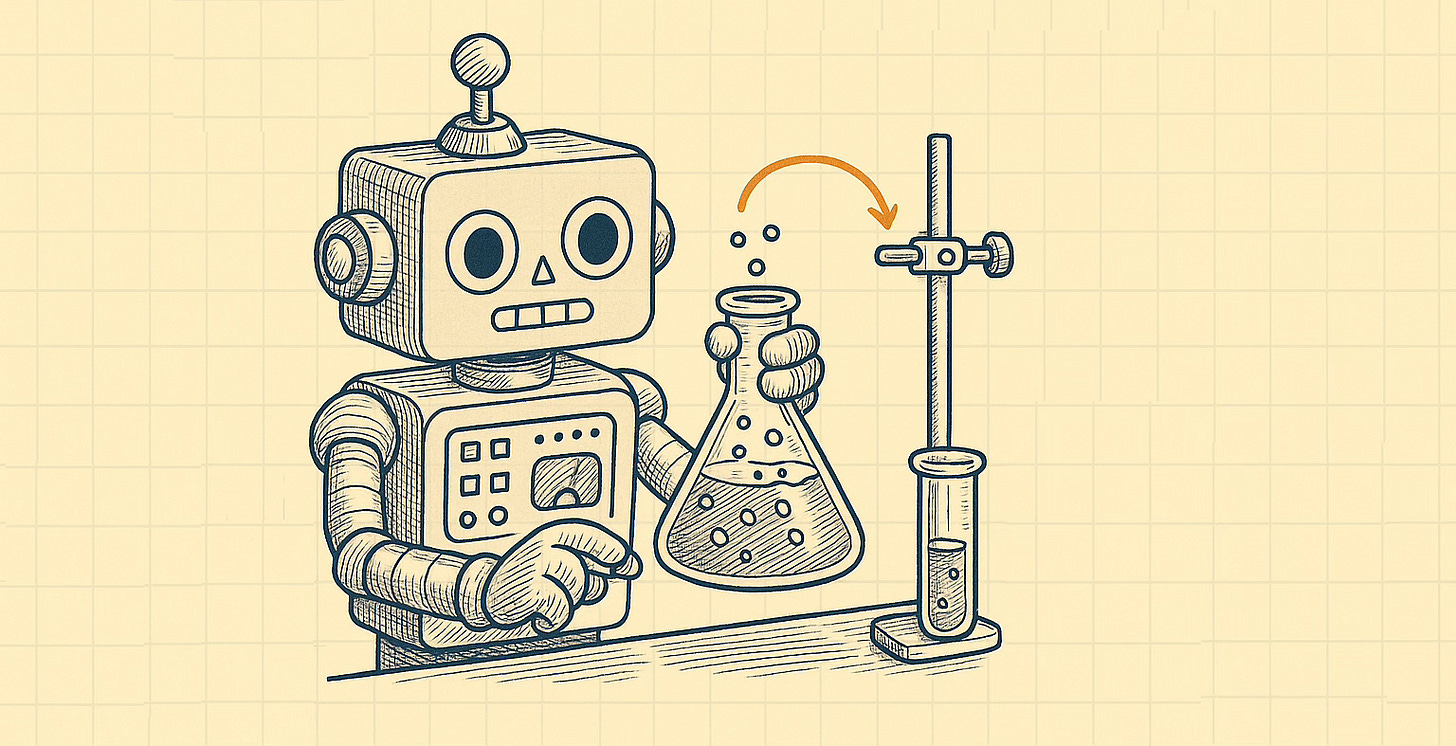AI Is Not Replacing Scientists or Radiologists, Yet
It Might Be A Big Boost For Teachers
This is a weekly roundup of the important news in AI, emerging tech and how it will impact the economy.
AI is Not Making Radiologists Redundant, Yet
Of all the jobs you could imagine AI replacing, Radiology seems like it should be high on the list. AI is now very good at analysing images, spotting patterns and making predictions. And yet the number of radiologists employed in the US continues to increase. What’s happening here?
A recent profile of the Mayo Clinic by the NYT seems to suggest that this is another case of AI automating tasks, but not whole jobs.
Radiologists do far more than study images. They advise other doctors and surgeons, talk to patients, write reports and analyze medical records. After identifying a suspect cluster of tissue in an organ, they interpret what it might mean for an individual patient with a particular medical history, tapping years of experience.
Predictions that A.I. will steal jobs often “underestimate the complexity of the work that people actually do — just as radiologists do a lot more than reading scans,” said David Autor, a labor economist at the Massachusetts Institute of Technology.
I’m not a medical expert, but from reports I’ve read it seems that the demand for radiology is still far outstripping supply, so even as each radiologist becomes more productive, it’s unlikely we’ll see their jobs start disappearing just yet.
AI is Not Dramatically Accelerating Science, Yet
The paper “Artificial Intelligence, Scientific Discovery and Product Innovation” made waves when a pre-print published last year, claiming that “AI-assisted researchers discover 44% more materials, resulting in a 39% increase in patent filings and a 17% rise in downstream product innovation.” MIT has now asked the author to withdraw it:
“We are making this information public because we are concerned that, even in its non-published form, the paper is having an impact on discussions and projections about the effects of AI on science. Ensuring an accurate research record is important to MIT. We therefore would like to set the record straight and share our view that at this point the findings reported in this paper should not be relied on in academic or public discussions of these topics.”
AI Could Be Useful In The Classroom
The gold standard in education is one-to-one tutoring, but this is something only the very rich can afford. If we tried to provide that to the general population, some insanely high percentage of the workforce would need to become teachers (or homeschooling parents). And so most countries have a higher ratio of pupils per student (14 is the OECD average) and try increase each teacher’s productivity by investing in their training and teaching materials.
Generative AI seems like a very promising candidate for improvement here. It’s very good at knowing the kind of broad, generalised knowledge that we teach school-age kids, and it is already productized as a personal, one-to-one conversation, in the form of chat apps.
Will it work? A World Bank study found great success using Microsoft Co-Pilot (powered by GPT4) helping secondary school kids in Nigeria learn English. From the report:
“Cost-effectiveness analysis revealed substantial learning gains, equating to 1.5 to 2 years of ’business-as-usual’ schooling, situating the intervention among some of the most cost-effective programs to improve learning outcomes. The findings highlight that artificial intelligence-powered tutoring, when designed and used properly, can have transformative impacts in the education sector in low-resource settings”
Let’s see if it can be replicated successfully elsewhere. If so, this could be very promising.
Links
An interested trend identified by Axios, across a number of studies, found that office workers are using LLM chatbots in work, but lying about it to their boss.
Waymo is now doing over 250,000 driverless taxi rides per week. That’s well over 1 million per month. Slower than software growth, but still moving fast.
The Big if True Science Accelerator is like a startup accelerator (a 15 week programme), but for scientists.
Similarly, the Da Vinci Fellowship gives €150,000 per fellow to young, contrarian Europeans, to live together in Paris “building the future of technology in Europe”.
A new think tank called the “Centre for British Progress” launched in April. They released a detailed proposal for how the UK’s Defence Innovation (UKDI) agency should be run.
A map of the Croatian AI Landscape
60% of the top AI companies in the US have at least 1 immigrant founder.
Here’s a good write-up from the Institute for Progress on the US government’s FORGE program, which identified, funded and de-risked private investment in research in geothermal energy development, which filled a gap that private enterprise couldn’t.



